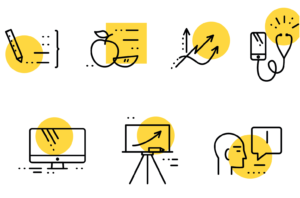Download Report: Blended Learning for Quality Higher Education: Selected Case Studies on Implementation from Asia-Pacific
 The rapid advancement of technologies and their ubiquitous use in our daily lives have dramatically changed the way knowledge is created and disseminated. As a technology-enhanced pedagogical approach, blended learning – the deliberate combination of online learning with face-to-face classroom-based learning – provides higher education institutions (HEIs) with the opportunities to enhance the quality of teaching and learning. While many of these opportunities have been well-documented in the literature, implementing and scaling up blended learning courses pose enormous challenges for HEIs in the Asia-Pacific region.
The rapid advancement of technologies and their ubiquitous use in our daily lives have dramatically changed the way knowledge is created and disseminated. As a technology-enhanced pedagogical approach, blended learning – the deliberate combination of online learning with face-to-face classroom-based learning – provides higher education institutions (HEIs) with the opportunities to enhance the quality of teaching and learning. While many of these opportunities have been well-documented in the literature, implementing and scaling up blended learning courses pose enormous challenges for HEIs in the Asia-Pacific region.
To address these challenges, UNESCO Bangkok in partnership with The Education University of Hong Kong (EdUHK) launched a two-year project to build the capacity of HEIs for blended learning. One of the outcomes of the project was this book by a team of blended learning experts and leaders in the region. Blended Learning for Quality Higher Education presents a framework and self-assessment tool developed from a holistic view of building institutional capacity to drive, sustain, and scale up blended learning. It incorporates case studies from experienced HEIs in the region to demonstrate how the framework and its dimensions could be operationalised, and how the gaps identified in the self-assessment exercise could be addressed.







